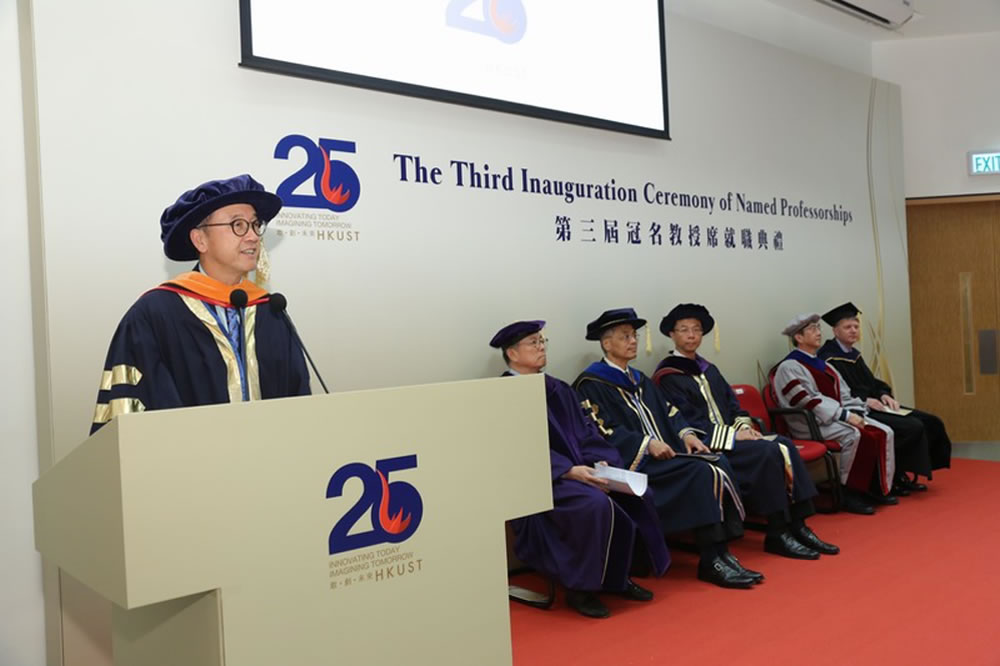Director, Deputy Head and Chair Professor of Information System, Business Statistics and Operations Management
Chair Professor, HKUST Institute for Emerging Market Studies
Director, Center for Business and Social Analytics
Director, Center for Technology Innovation, Consultancy and Strategy
Digital transformation is in full swing. A wealth of information is available at the touch of a button, and virtual communities allow interaction around the globe. Yet with these opportunities come mounting challenges, from the global economic losses caused by cybercrime to threats to users’ privacy on Facebook or Twitter. Leading the crusade to tackle problems in the virtual world for real-world impact is Professor Kai Lung Hui, whose pioneering research on IT, policy and society seeks to maximize social welfare while reaping the benefits of technological advancement.
Having obtained both his BBA (First Class Honors) in Information Systems Management and his PhD in Information Systems from HKUST, Professor Hui is one of our most distinguished alumni. His academic career came full circle in 2008 when he returned to HKUST to take up the role of Associate Professor in the Department of Information Systems, Business Statistics and Operations Management. Over the last decade, his career at the University has gone from strength to strength. He is now Chair Professor and Deputy Head of the Department, and was recently named Associate Dean of the HKUST Business School.
It is difficult to think of someone better placed to explore the opportunities and challenges posed by the rapid and unpredictable evolution of IT in the modern world. In recent years, Professor Hui has directed his attention toward the increasingly pressing social issues of cybercrime, online privacy and information security. Although dealing with inflammatory topics, his analysis—based on sophisticated analytical models and applied econometric and statistical techniques—is invariably nuanced and even-handed, showing how the benefits of digitalization can and should be weighed against its social costs.
In 2017, addressing an area often overlooked in public policy making, Professor Hui explored the “global and virtual nature of cybercrime,” which “calls for collaborative international enforcement.” Moving from the global to the community level, with concern for individual users’ privacy, a 2018 article examined the novel area of peer disclosure online, taking “an important first step towards shaping a healthy online environment for social interaction.”
Professor Hui always finds ways to incorporate his research findings and the latest policy developments into his teaching, from undergraduate courses all the way to EMBA programs. Perhaps the best illustration of this productive research–teaching nexus is HKUST’s new MSc program, co-directed by Professor Hui, in the burgeoning area of Fintech.
Beyond the University, Professor Hui has served on the editorial boards of a range of prestigious journals in his field, most notably Information Systems Research, and received several awards for his contributions to teaching, service and research.
However, his contributions are by no means limited to academia. Professor Hui is a firm believer in applying theoretical knowledge for the good of society, and industry and governments around the world have benefited from his consultancy. Keenly aware that in an increasingly connected age, researchers must find diverse channels for research impact, he writes regular op-eds for local and international audiences that bring his quantitative insights to bear on policy issues ranging from university education to cooperation between academia and business on scientific development.
These are just some of the ways in which Professor Hui offers innovative solutions to ensure that society can thrive in the Information Age.

 |












